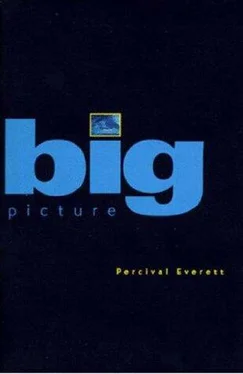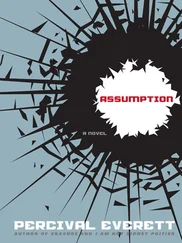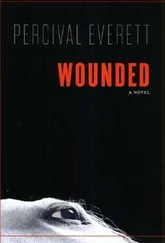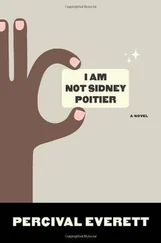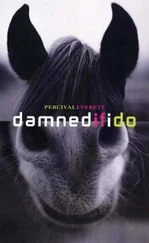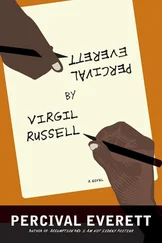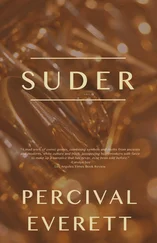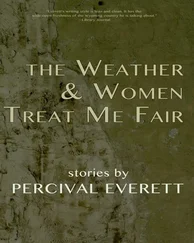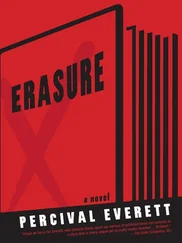When Michael awoke he was staring at an expanse of blue, but there was no wire mesh protecting it, no window holding it away from him. He sat up in bed and realized he was staring at his canvas set on an easel. There were two people in the room with him, a woman and a man, on each side of the painting.
“I’m Dr. Unseld,” the woman said. Her hair was tied back and she wore a brown skirt and a tight white sweater.
“And I’m Dr. Overton,” said the man, his bald head catching light from the ceiling fixture. His tie was loosened and his collar button undone.
Michael nodded, sitting up, rubbing his eyes, and making the sheet neat about his middle. “How is my wife?”
“She’s fine,” Dr. Overton said. “A bit concerned.”
“I can imagine,” Michael said.
Dr. Unseld smiled. “Do you remember this painting?” she asked, but didn’t pause for an answer. “This is what you did before you ate the oil color.”
Michael nodded.
“Do you recall eating the paint?” Dr. Overton asked.
“I think so.”
“How do you feel about it now?” Overton asked.
“I feel fine. I’m sorry, I’m not really sure why I did it. Somehow work got the better of me.” Michael looked at the canvas.
“Is that how you think of your work?” Unseld said, stepping away from the easel and closer to the bed. “As an adversary? As an enemy?”
“Sometimes.”
“What were you thinking while you were eating the paint?” Overton asked.
“I don’t know,” Michael said, looking at the man’s eyes. “This seems a lot like an ambush. I mean, to just wake up and find you in here with that thing.”
“An ambush,” Overton said. “So we’re the enemy?”
“I didn’t say that,” Michael said, frowning a bit. “Listen, I did something that I shouldn’t have done, something that doesn’t make a lot of sense, doesn’t make any sense. I realize that. But I love my wife. I like my life most of the time. I don’t like being in here.”
“Do you remember the man who mowed your lawn?” Overton asked.
“Yes.”
“What do you remember exactly?” Unseld asked, sitting in the only chair in the room.
“What do you want to know? I can tell you what he looked like. Gail and I didn’t really want him coming back like he did. Why are you asking me about him?”
“Just asking.”
“Listen, am I allowed to go home?” Michael asked with a long sigh.
Dr. Unseld crossed her legs and leaned forward, resting her elbow on her knee and pinching the bridge of her nose. “That really depends on you,” she said.
“You mean there’s some sanity question that I can answer and then you’ll unlock the gates?”
“You can see our situation, can’t you?” This from Overton who was studying the canvas with his arms folded across his chest. “How do we know you’re not still dangerous to yourself?”
“I guess you don’t,” Michael said. “But I’m not dangerous to anyone else. To tell the truth, it’s none of your business if I want to kill myself. I may as well tell you that I wasn’t trying to do that when I was eating the paint.”
“What were you trying to do?” Unseld asked.
“I was trying to eat the paint,” Michael said. “Stupid, I know, but I wanted to taste it. I looked at it and I wanted to eat it. Like I said, stupid.”
Unseld and Overton looked at each other and seemed to communicate with their eyes. Unseld stood up from the chair and went over to Michael’s side. “Don’t worry,” she said.
“What is your relationship with the color blue?” Overton asked.
“It’s a primary color,” Michael said. “Of course, that canvas is cerulean.”
“Does that make a difference?” one of the doctors asked.
“In so far as it’s not indigo or pthalo blue, I guess.”
“I see,” Overton said. “It’s a kind of sky blue, isn’t it? Does it make you think of freedom?”
“Not really. Do you think you might be overworking the loose associative stuff?”
Unseld smiled.
“So, can I go home?”
“We’ll see.” Overton said.
Michael nodded, deciding that to show anything less than calm forbearance and muted patience would certainly work against him. He was already sorry that he had slipped and referred to his work that way. But he also did not want them believing that he was acting out the role of the “compliant, good patient” in an attempt to deceive them. He found, however, as he laid his head back down, that he didn’t care. His head was hurting rather severely, but it was a headache he recognized, had cataloged, and knew well, so it comforted him to have it. He took comfort in the very knowledge that so greatly concerned him previously, that as diagnosticians these people were Neanderthal.
Michael was awake and sitting up in the chair when the door was unlocked later that day for Gail. He stood and they embraced, lovingly, with mutual concern, but with a distance, not so much a coldness as an absence of heat.
“I’m sorry,” Michael said. “I’m so sorry.” He was hugging her tightly, speaking into her hair.
Gail pulled away from him and sat on the chair. “Are you okay?”
Michael walked to the window and looked out at the lights in the parking lot. “Yes, I’m okay.”
“I’m scared,” she said.
“I know. I wish I could take it away.”
“I guess time will do that,” she said, bravely, lying, not looking at him but at the bed. “You know, I really hate your head. I hate knowing it gives you pain and then I hate you sometimes.”
“It surprises you that I understand what you just said?”
“You understand everything,” she said. “You’re too damn understanding.”
Michael tried to be silent without giving the impression that he was withdrawing. He noted how his imprisonment was allowing him a certain perceptive distance, a mechanical or clinical eye that he found uncontaminated by his own wants and insecurities. Still, he was troubled by his indifference.
“I do love you,” he said.
“Everything seemed to be going so well,” Gail said, rubbing one eye.
“It was.”
“Then what happened?” She looked directly at him for the first time and he found that a relief. “Tell me what happened, Michael?”
Michael sat on the bed, leaned forward, his hands clasped in his lap. “I don’t know.”
“Will it happen again?”
“No.”
“How do you know?”
“I know,” he said.
“You can’t know. You didn’t know this was coming, did you? Did you?” The anger was finding its way into her voice. She stroked her hair and pulled it behind her ear. “Will you talk to the doctors?”
“I’ve already talked to them.”
Gail stood and Michael stayed seated. “They say you’re coming home.”
Michael nodded. “I want to come home.”
“You conned them just like you conned me. Just like you con me every day. They like you, Michael. They think you’re smart and funny and …” She stopped and bit her lower lip. “I’ll see you tomorrow.”
Lawrence Miller didn’t balk at the draw. Balking wasn’t going to do much good. He heard the muffled comments and the sighs, but he ignored them. Kemp Hollis pushed his chin away from his body and spat tobacco juice into the dust.
“That’s a filthy habit,” Lawrence said and leaned back against the booth of the concession stand.
“Ain’t a habit.”
Lawrence looked at him.
“A habit is something you have to do,” Kemp said. “Chewing tobacco is something I want and choose to do.”
“All day long, every day?”
“Damn near.”
Lawrence thought again about the bull. “It’ll be a short son-of-a-bitchin’ ride at least.” He smiled briefly. “Strike you funny that I’m the only black man here and I draw the monster?”
Читать дальше
